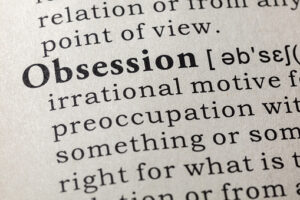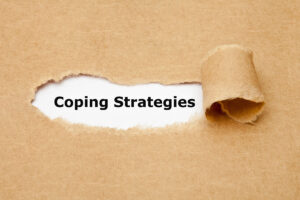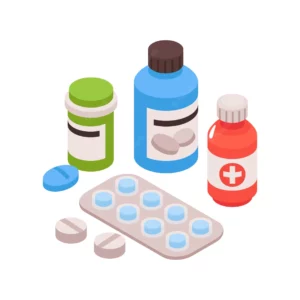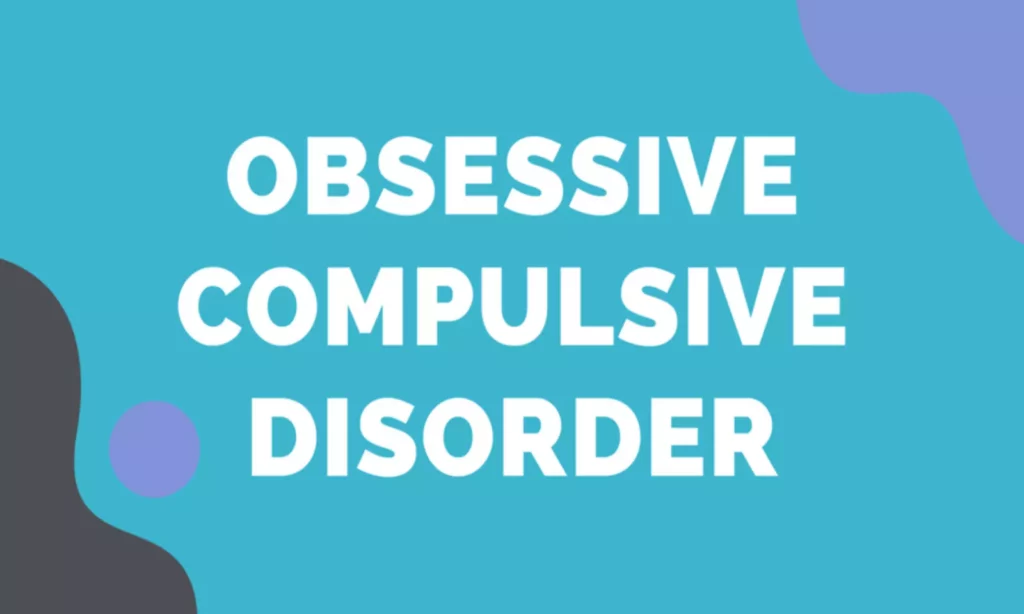When most people think of OCD, they think of hand-washing and germaphobia. While these are certainly common symptoms of OCD, there are many other obsessions that can be just as debilitating. In this blog post, we will explore some of the more dark and twisted obsessions that people with OCD often experience. If you or someone you know is struggling with OCD, it is important to get help. There is no shame in seeking treatment, and there is no one who is too far gone to recover. With the right support system, anyone can overcome their OCD and start living a happy and healthy life!
Contents
Defining Obsessions In OCD

OCD is a popular acronym for Obsessive Compulsive Disorder. OCD is characterized by intrusive, unwanted thoughts (obsessions) and/or repetitive behaviors (compulsions). People with OCD often perform compulsions in an attempt to ease their anxiety or rid themselves of their obsessions. Unfortunately, this only serves to reinforce the cycle of OCD and can actually make symptoms worse.
As we just understood, OCD has two major components: obsessions and compulsions. We will learn about obsessions in detail. In regular, layman’s language, we use obsessions as a word to describe something that is our favorite or something that we think a lot about. For example, “I’m obsessed with that new song!” or “I’m obsessed with my boyfriend/girlfriend.” These are some common, lighthearted obsessions that we all experience from time to time. However, people with OCD have much more intense and debilitating obsessions. Their obsessions are often dark, intrusive, and unwanted. They can be about anything from germs and contamination to fear of harming oneself or others. Some common obsessions in OCD include:
- Fear of contamination or germs
- Fear of harming oneself or others
- Intrusive thoughts about sex or violence
- Excessive focus on religious or moral issues
- Superstitious beliefs
- Perfectionism
These are just some of the most common examples we see in day-to-day life. In severe cases, some obsessions can be extremely bizarre, such as a fear of abduction by aliens. Some can also be pretty explicit or disturbing, such as intrusive thoughts about sex or violence. No matter how “strange” or “weird” someone’s obsessions may seem, it is important to remember that they are real and very distressing for the individual.
Examples
We will know more about obsessions, we will identify and observe some examples of obsessions.

- A young woman is constantly worried about germs and contamination. She washes her hands obsessively, avoiding anything that she perceives as dirty. She won’t leave her house unless she is sure that she is clean. This causes her a lot of anxiety and prevents her from living a normal life.
- A student is working on a school assignment. He is a perfectionist and wants everything to be perfect. He spends hours on the assignment, making sure that every detail is just right. He is so obsessed with the project that he doesn’t sleep or eat properly. This causes him a lot of stress and affects his health.
- A girl is very paranoid and worrisome in nature. She is always afraid that something bad is going to happen to her. She has a lot of intrusive thoughts about being harmed or abducted. This causes her a great deal of anxiety and she often has panic attacks.
- A man is consumed by thoughts of violence and harm. He is afraid that he will hurt someone, even though he has never been violent before. These thoughts are so intrusive and distressing that they prevent him from leaving his house or interacting with other people.
- A woman is preoccupied with religious or moral issues. She obsessively reads the Bible and prays several times a day. She is afraid that she will go to Hell if she doesn’t follow her religion perfectly. This fear consumes her and prevents her from living a normal, happy life.
- A person has continuous, non-stop thoughts about death and dying. They are afraid of dying, even though they are healthy and have no reason to be. These thoughts cause them a lot of anxiety and distress.
- Someone has a favorite number, let’s say “23”. They see this number everywhere they go. They start to believe that the number has some sort of special meaning. They become obsessed with it and can’t think about anything else.
- A person gets a new car. It’s their dream car and they are obsessed with it. They wash and polish it every day, making sure that it is always clean. They take extra care when driving, afraid that something will happen to the car. They even get into fights or arguments with other people over it.
- A woman is pregnant and she is obsessively worried about her unborn child. She reads everything she can on pregnancy and childbirth. She is constantly worried that something will happen to the baby. This causes her a lot of anxiety and she has difficulty sleeping or eating properly.
As you can see, obsessions can be about anything. They can be strange, bizarre, or disturbing. They may also seem meaningless or even silly. But no matter what they are about, obsessions can be very distressing and debilitating for the people who suffer from them.
Causes
It is important to understand that obsessions are not the result of a choice. They are not something that people can just “snap out of”. There is no single cause of OCD, but there are some risk factors that may contribute to its development. Some of the most common ones include:

- Brain composition and functioning: It is rightly said that our thoughts control us. In case of OCD, particular areas and circuits in the brain are responsible for obsessive and repetitive thoughts. A slight imbalance in the chemicals that these regions produce can result in OCD.
- Family history: If anyone in your family suffers from OCD or any other mental disorder, you are at a higher risk of developing it. This may be due to genetic factors or simply because you have seen firsthand how the disorder can affect someone’s life.
- Hormones: Neurotransmitters such as serotonin play a vital role in regulating our mood and emotions. An imbalance of these chemicals can lead to OCD.
- Traumatic events: When one faces trauma, they tend to become more focused on the things that remind them of the event. This may make them more prone to developing OCD. Some of the most common traumatic instances one may face include childhood trauma, abuse, the loss of a loved one, or witnessing a traumatic event.
- Emotional issues: Emotions are a natural part of life. However, some people find it difficult to cope with them. Certain emotions such as anxiety, fear, low self-esteem, lack of confidence, and guilt can trigger OCD.
- Stress: Stress is a common trigger for OCD. It can be caused by work, school, family, or any other life event. When someone is under a lot of stress, they may start to obsess over things that they wouldn’t normally think about.
- Traits and qualities: Lastly, people have certain personality characteristics that can make them more likely to develop OCD. Some of these include being perfectionists, having high standards, being control freaks, or being highly analytical.
These are a few of the most common risk factors for OCD. It is important to remember that not everyone who has one or more of these risk factors will develop the disorder. These are just some of the things that may make someone more vulnerable to OCD.
Consequences
When one is constantly consumed by their obsessions, it can have a significant impact on their life. Some of the most common consequences include:
- Anxiety and fear: As obsessions are often anxiety-inducing, it is not uncommon for people with OCD to live in a state of constant fear. This can lead to difficulty concentrating, sleeping, as well as eating.
- Isolation: OCD can make people feel like they are different from others and that no one could possibly understand what they are going through. This can lead to social isolation and withdrawn behavior.
- Depression: Depression is a common symptom of OCD. This is because the constant anxiety and fear can take a toll on someone’s mental health.
- Difficulty functioning: OCD can make it difficult for people to function in their everyday lives. This is because the disorder can consume a large amount of time and energy. It can also interfere with work, school, and relationships.
- Physical problems: Obsessions in OCD can also lead to physical problems such as headaches, stomachaches, and muscle tension. This is because anxiety can manifest itself in physical symptoms.
- Problems with work/school: As mentioned before, OCD can interfere with work or school. This is because the disorder can make it difficult to concentrate and focus on tasks. It can also lead to absenteeism and low productivity.
- Strained relationships: OCD can put a strain on relationships. This is because the disorder can cause people to withdraw from those they love and become consumed by their obsessions.
- Self-harm: Some people with OCD may resort to self-harm as a way of dealing with their anxiety. This can include things like cutting, burning, or even hitting themselves.
- Suicide: In extreme cases, OCD can lead to suicidal thoughts or behaviors. This is because the constant anxiety and guilt of thinking about harming oneself can become too much to bear.
These are just a few of the ways that OCD can impact someone’s life. If you or someone you know is struggling with OCD, it is important to seek help from a mental health professional to minimize the impact of the disorder.
Tips To Deal

Now that we are more aware of obsessions in OCD, we will learn some ways to understand and deal with it. There can be two ways to manage these obsessions: either by adapting self-help habits and strategies or by consulting a mental health professional. Some popular self-help tips are:
Try to avoid the triggers
This might be easier said than done, but it is important to try to avoid the things that trigger your obsessions. If you are obsessing over a certain person, try to avoid them. If you are obsessing over a certain event, try not to think about it. This will help to control your thoughts and prevent the obsession from taking over. It can also prevent you from engaging in compulsions, which will only reinforce the obsession.
Confront your fear
Confronting your fear can seem like the most daunting task, but it is important to face your fears head-on. This will help you to realize that your fear is not as bad as you think it is. You may start doing so by gradually exposing yourself to the thing you are afraid of. For example, if you are afraid of dogs, you may start by looking at pictures of dogs, then watching videos of dogs, and eventually, you may even be able to pet a dog. You may also want to try this with your thoughts. If you are obsessing over a certain thought, try to confront it by writing it down or saying it out loud. This will help you to realize that the thought is not as powerful as you think it is.
Acknowledge the difficulties
Obsessions are often irrational and don’t make sense to those who don’t have OCD. This can be frustrating for both the person with OCD and their loved ones. It is important to remember that obsessions are not under the person’s control and that they are not trying to be difficult. One of the best things you can do for someone with OCD is to offer support and understanding. This can be a difficult disorder to live with and it is further important to have a supportive network.
Build healthy coping mechanisms

Coping mechanisms are the things we do to deal with our stressors. It is important to have healthy coping mechanisms in place to deal with the obsessions in OCD. Some healthy coping mechanisms include things like exercise, relaxation techniques, as well as journaling. These activities can help to reduce anxiety and provide an outlet for obsessions. This can also involve lifestyle modifications like getting enough sleep, eating a balanced diet, and avoiding drugs and alcohol. These habits and changes can help to reduce the symptoms of OCD and make it easier to manage the disorder.
Boost your self-esteem
One of the main goals of treatment for OCD is to boost self-esteem. This can be done by working on accepting yourself, setting realistic goals, and challenging negative thoughts. These activities can help to build self-confidence and improve the quality of life for those with OCD.
Form a mantra
A mantra is something that you say to yourself to help you stay focused and calm. Mantras can be helpful in dealing with obsessions and compulsions. Some examples of mantras include “I am in control,” “I am not my thoughts,” and “I can do this.” These phrases can help to remind you that you are in control of your OCD and that you can overcome your obsessions.
These tips might not be the cure for OCD, but they can help to manage the symptoms and make it easier to live with the disorder. They may provide some relief from obsessions and compulsions and help to improve the quality of life.
Seek Professional Help
While self-help strategies can be helpful, they may not be enough to manage the symptoms of OCD. If you are struggling to cope with your obsessions and compulsions, you may need to seek professional help. This can be done by meeting with a mental health professional or also by attending a support group. These resources can provide you with the tools and support you need to manage your OCD. Professional mental health assistance uses therapy, medication, or a combination of both. This will depend upon your symptoms as well as your individual need.
Therapy
Therapy is the process of talking with a mental health professional to explore your thoughts, feelings, and behaviors. It can help you to understand your OCD and develop healthy coping mechanisms. There are different types of therapy that can be used to treat OCD. These include:

- Cognitive-behavioral therapy (CBT): This type of therapy focuses on changing the thoughts and behaviors that are associated with OCD.
- Exposure and response prevention (ERP): This type of therapy focuses on exposure to the things that trigger your OCD and then learning to prevent the compulsions.
- Acceptance and commitment therapy (ACT): This type of therapy focuses on accepting the thoughts and feelings that are associated with OCD.
- Interpersonal therapy: This type of therapy focuses on the relationships that are affected by OCD.
- Psychodynamic therapy: This type of therapy focuses on the unconscious thoughts and feelings that associate with OCD.
- Narrative therapy: This type of therapy focuses on the stories that you tell yourself about your OCD. This means that it can help to change the way you think about your disorder.
- Expressive therapy: This type of therapy uses creative outlets, such as art, to express the thoughts and feelings that are associated with OCD.
The right type of therapy for you will be a decision that you make with your mental health professional. It is important to find a therapist that you feel comfortable with and who has experience treating OCD.
Medication
In severe cases, medication might be necessary for the treatment of OCD. Medication help to reduce the symptoms of OCD and make it easier to cope with the disorder. They work by changing the levels of chemicals in the brain that associate with OCD. The most common type of medication used to treat OCD include medicines such as:

- Selective serotonin reuptake inhibitor (SSRI): This type of medication can help to reduce the symptoms of OCD by increasing the level of serotonin in the brain.
- Serotonin and norepinephrine reuptake inhibitor (SNRI): This type of medication can help to reduce the symptoms of OCD by increasing the levels of serotonin and norepinephrine in the brain.
- Tricyclic antidepressant (TCAs): This type of medication can help to reduce the symptoms of OCD by changing the levels of neurotransmitters in the brain.
- Antipsychotic medication: This type of medication can help to reduce the symptoms of OCD by changing the levels of dopamine in the brain.
Medication is not a cure for OCD, but it can be an effective treatment option. It is important to work with your mental health professional to find the right medication for you. It is also important to be aware of the side effects of these medications.
Battling obsessions in OCD can be a daunting as well as a never-ending task. However, there are treatments available that can help you to manage your symptoms. If you are struggling to cope with OCD, professional help may be necessary.
Conclusion
In conclusion of the above, obsessions in OCD can be extremely debilitating. However, there are treatments available that can help you to manage your symptoms. If you are struggling to cope with OCD, it is important to seek professional help. Finding the right treatment for you is an important step in managing your disorder.
If you are searching for a reliable, affordable, and effective source for seeking help for OCD or similar issues, reach out to Therapy Mantra. We are a team of highly professional mental health experts offering online therapy services. Contact us today to learn more about how we can help you or your loved ones. Visit our website to book an online therapy or you may also download our free OCD treatment app on Android or iOS app for more information.


